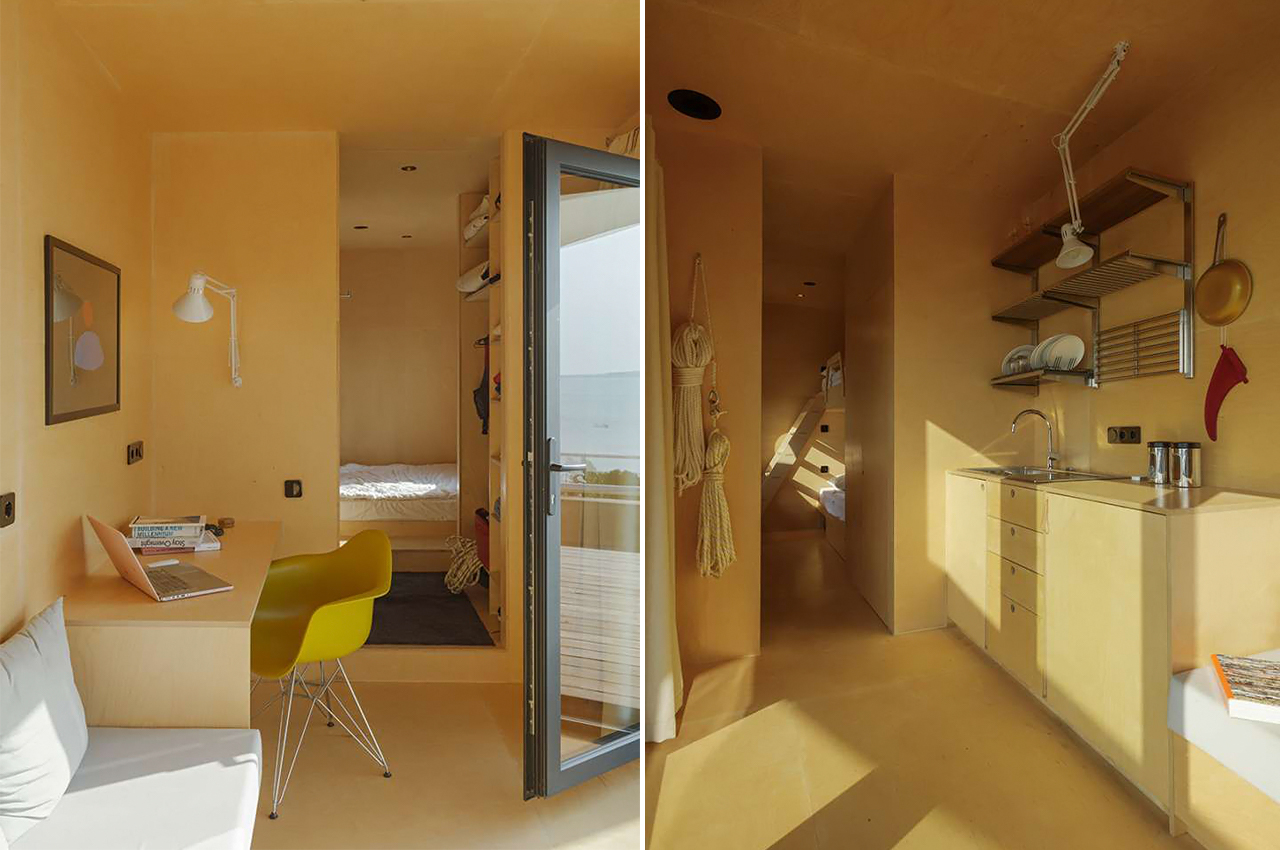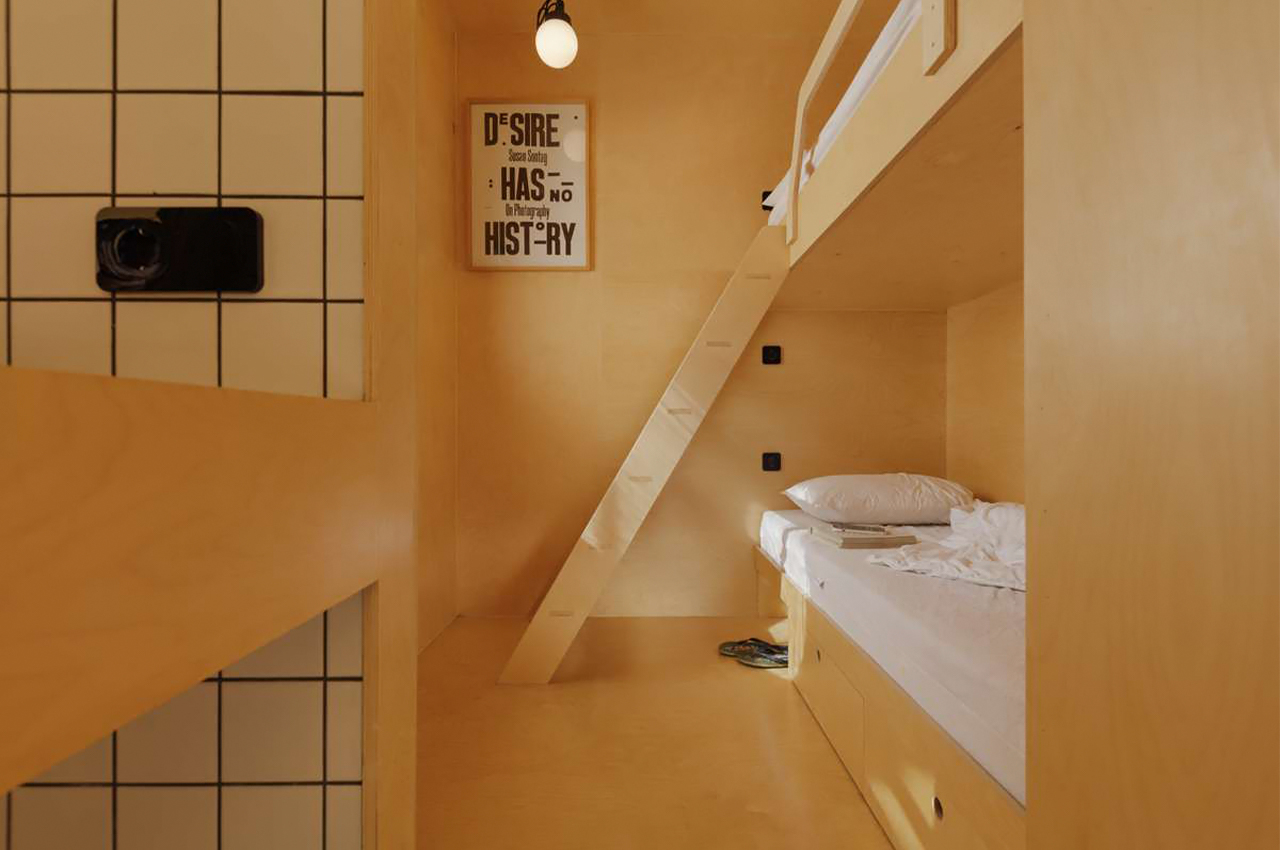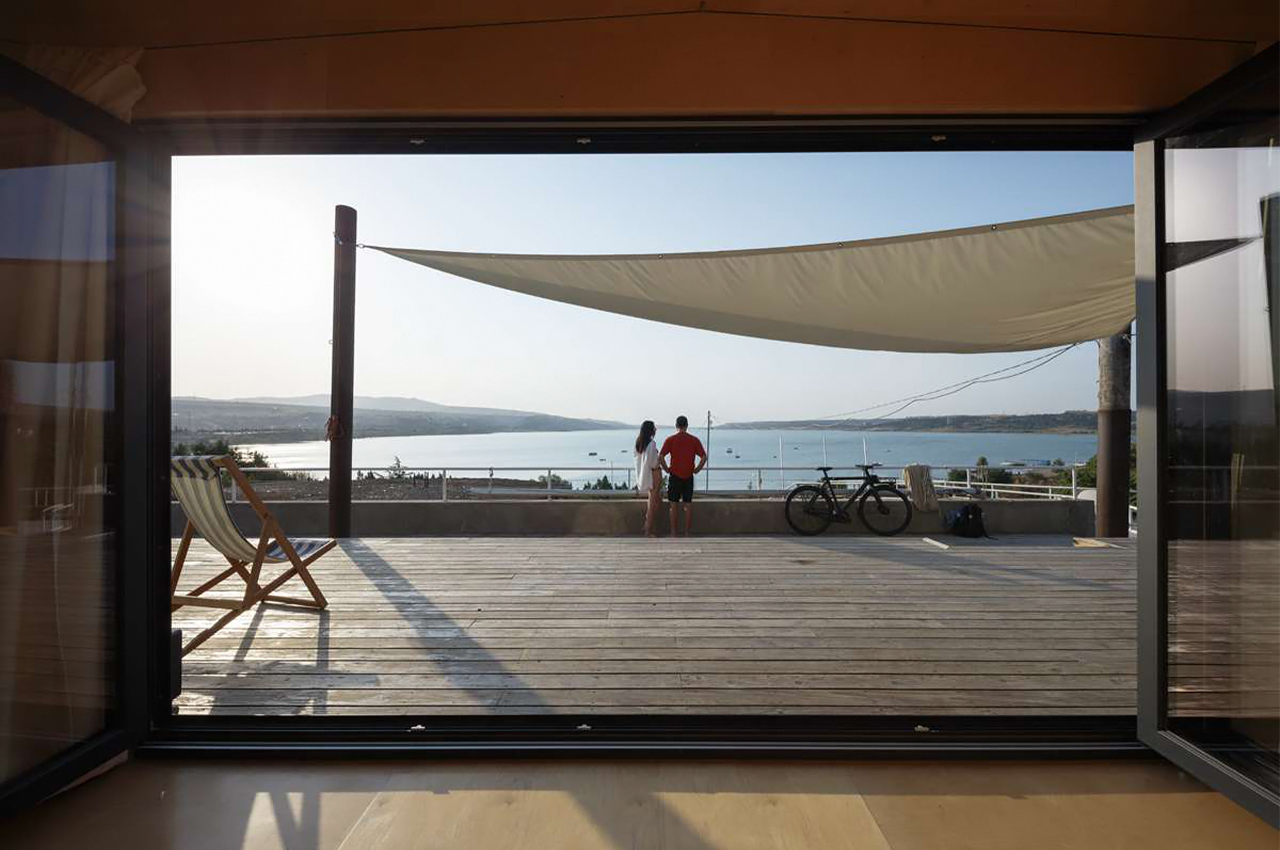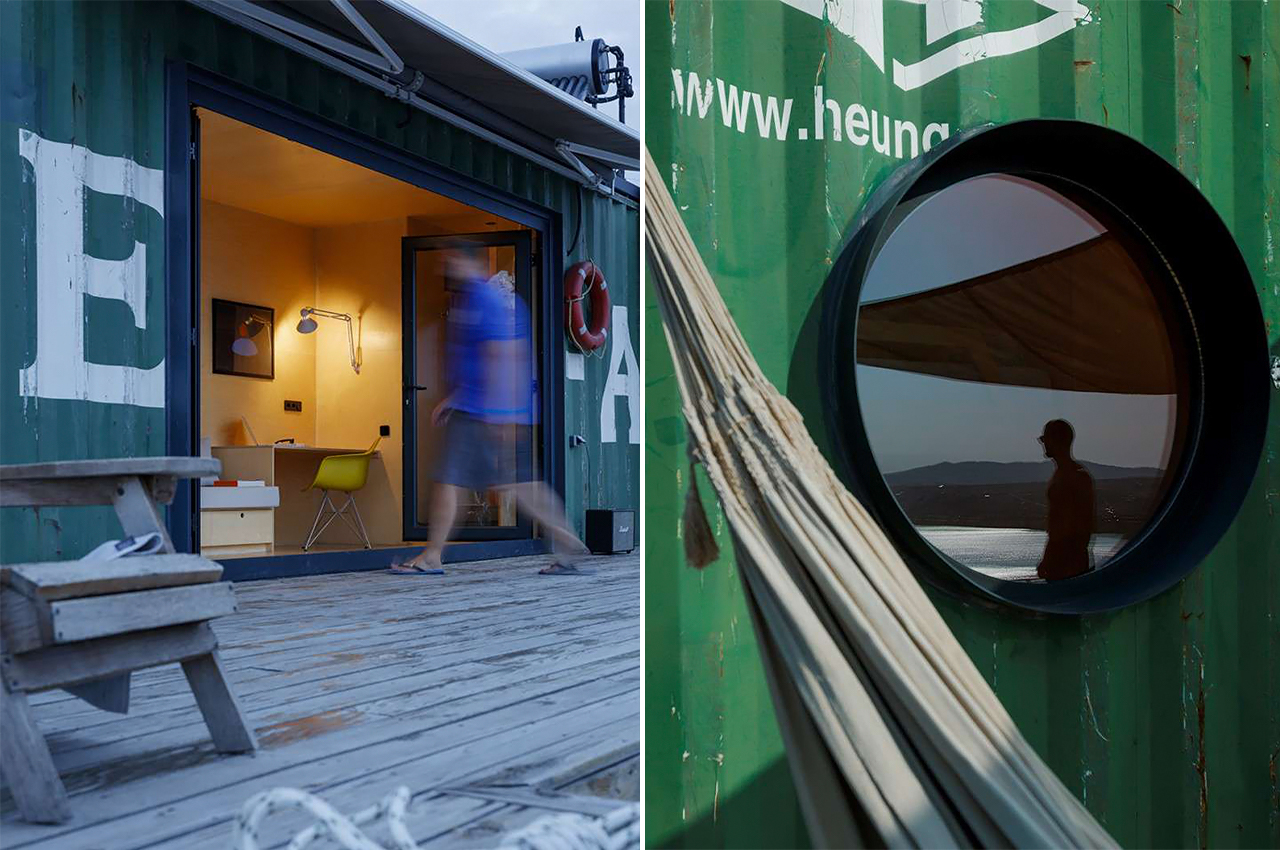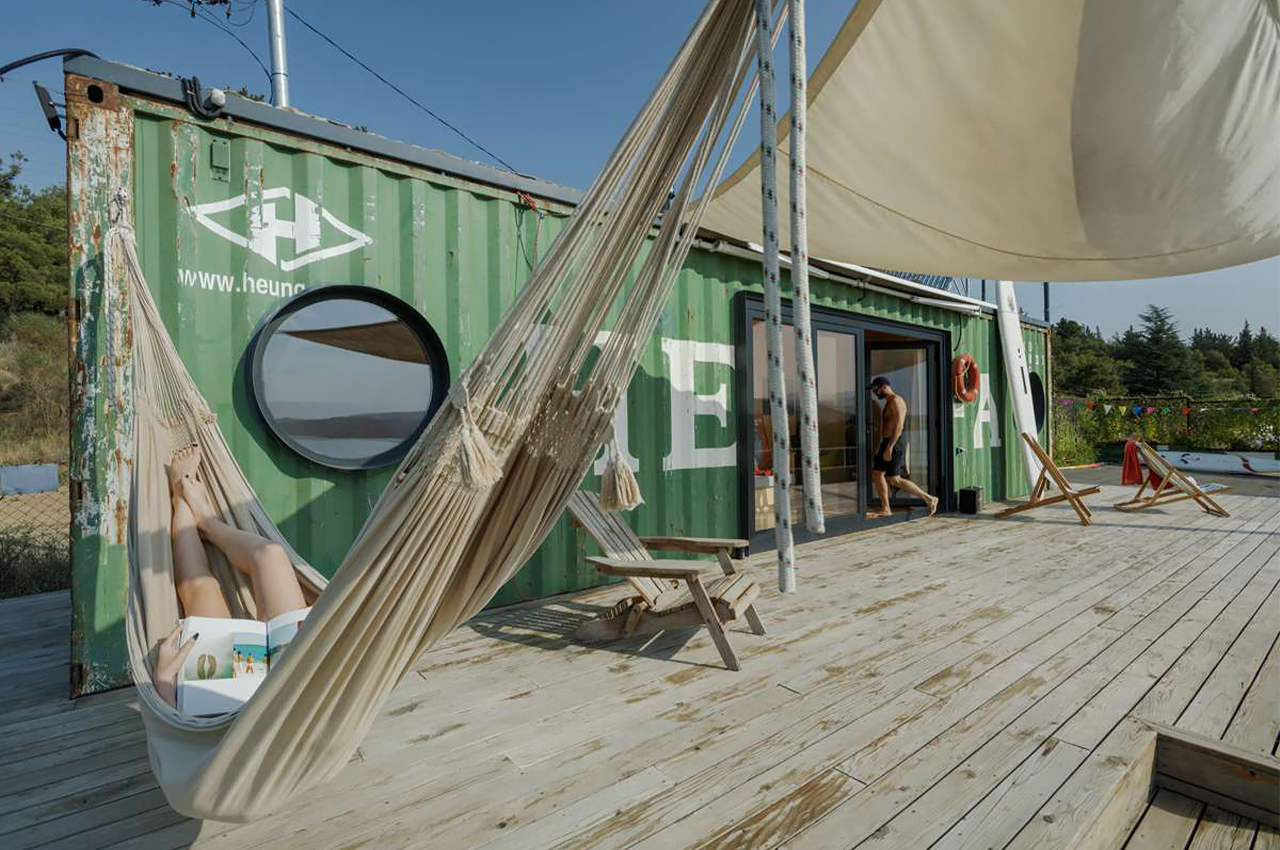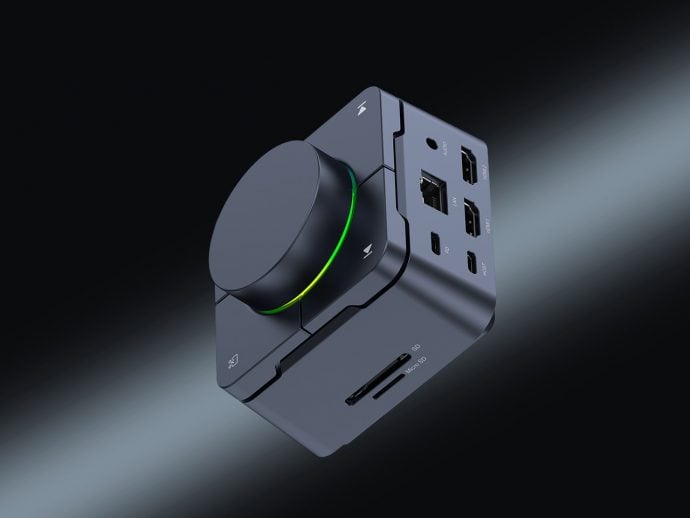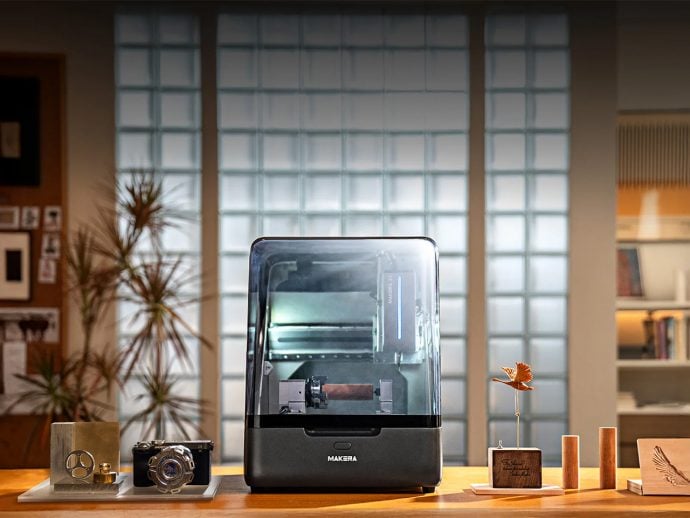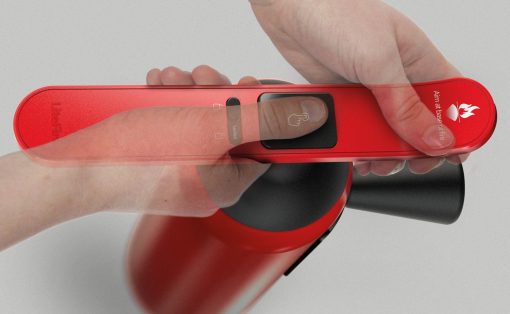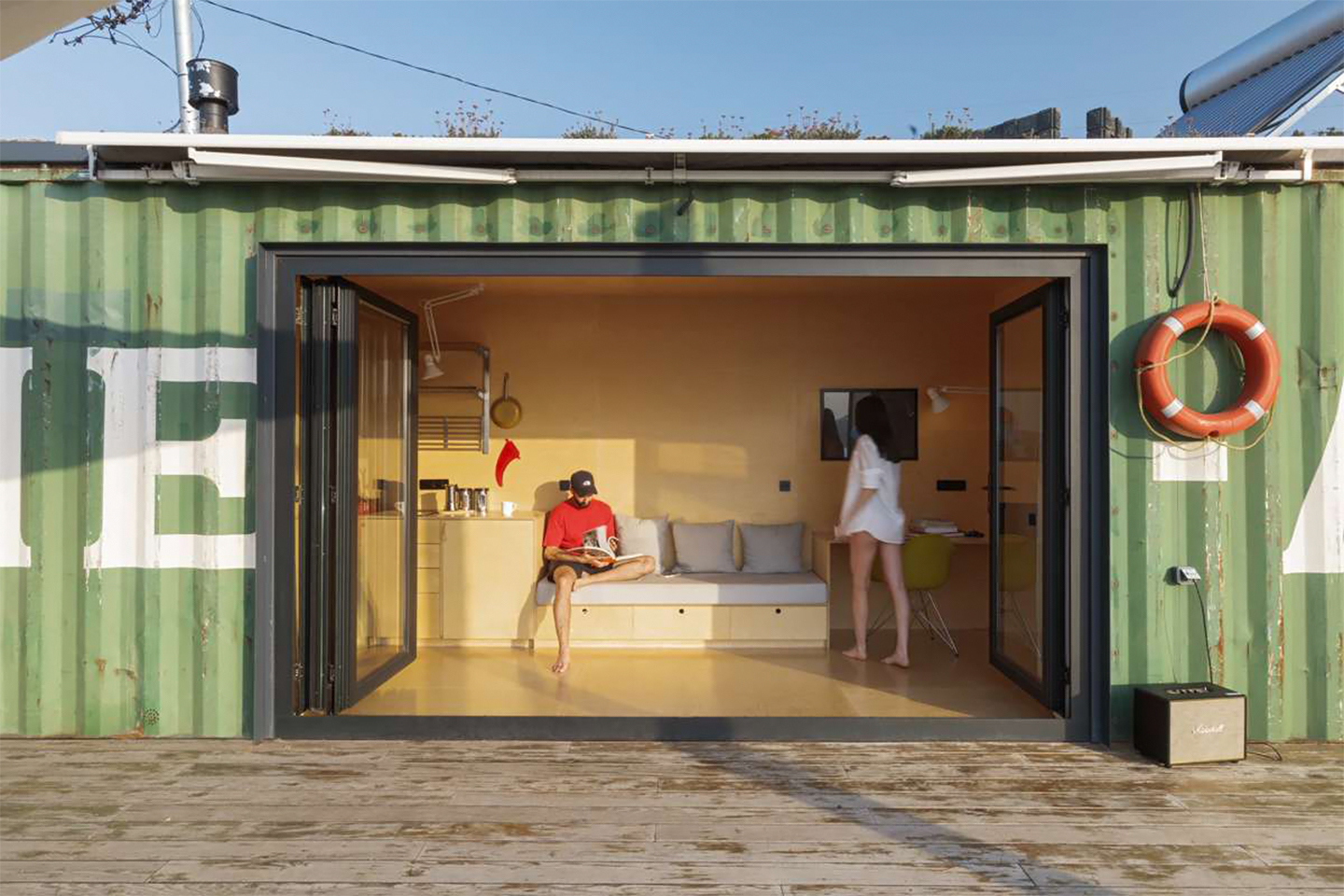
When designers repurpose shipping containers into shelters, it feels like the adult version of building forts and tents! It’s taking something that doesn’t resemble a shelter – like bedsheets or shipping containers – and turning them into the most wonderful getaways. This MUA getaway cabin is right by the Tbilisi Sea, in Georgia, and gives our summer imagination a life. The cabin is located 20 minutes away from the city center and has been designed by the architecture team to serve as a relaxing space where they can recharge their creative batteries – it’s like when a doctor prescribes medicine for themself, win-win!
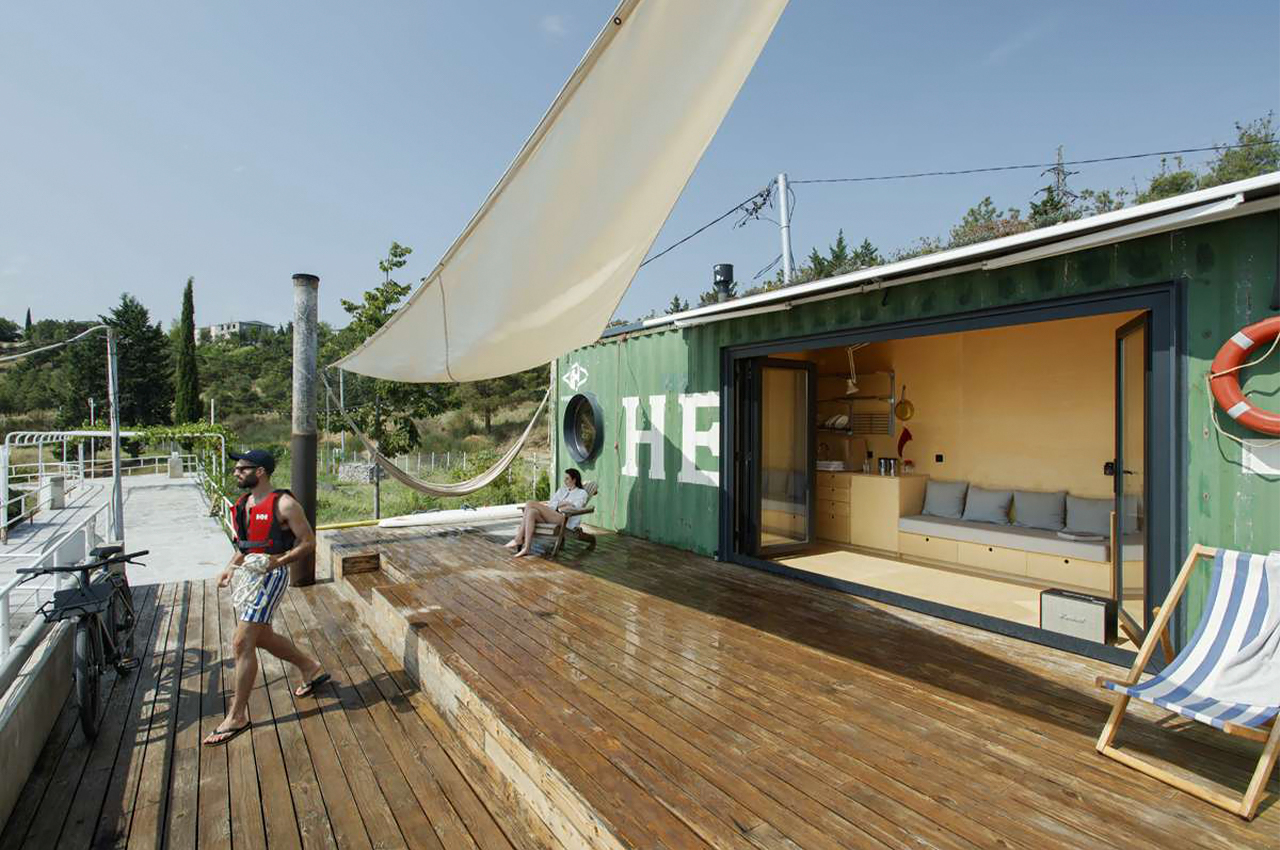
The container sits next to the sailing club (another MUA creation) by the Tbilisi Sea. During summer, this area is popular among the locals and becomes a hub for fishing and water sports activities. The impressive monument of Zurab Tsereteli also graces the location which makes it an even more interesting project site.
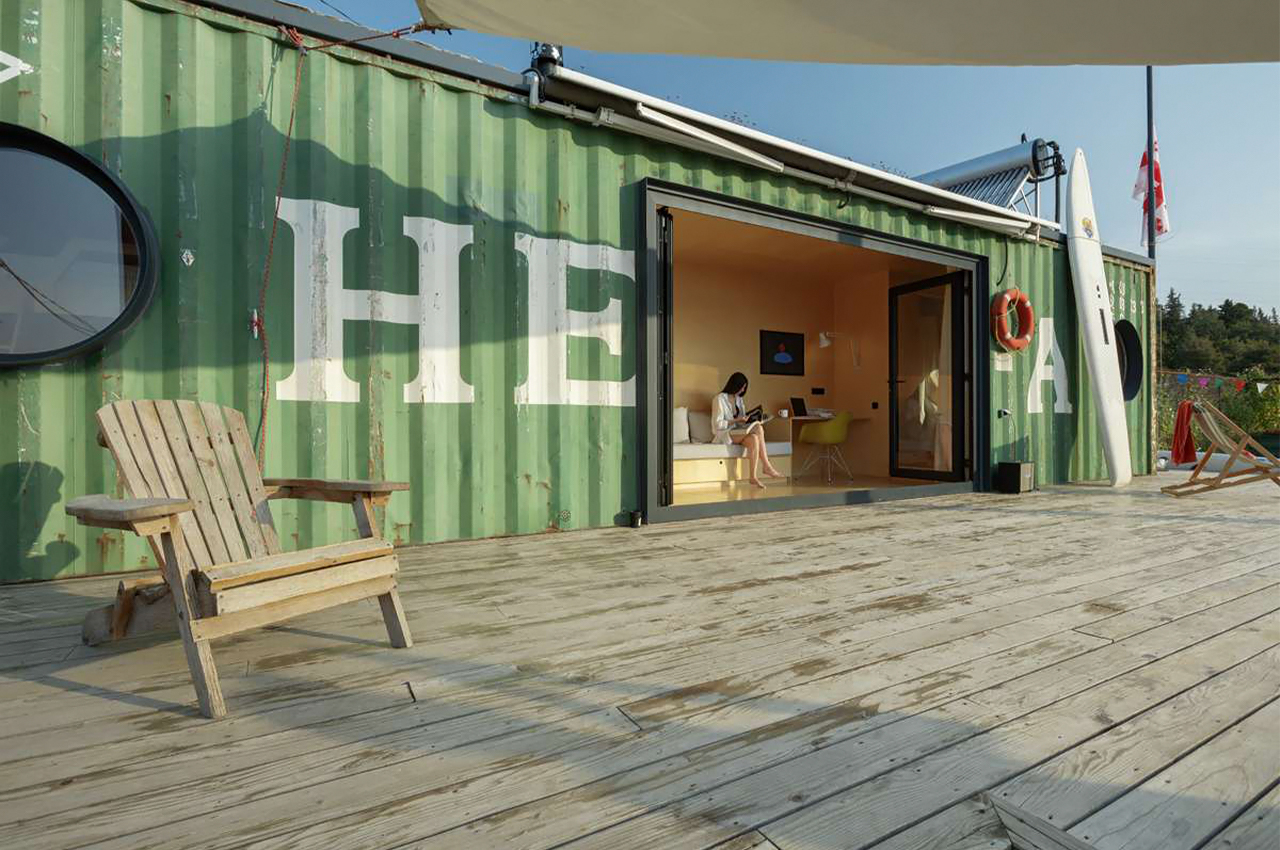
Shipping container projects are a significant part of MUA’s research into modern architecture. “Replacement of traditional building materials with second-hand, compact pre-fabricated steel boxes and creating various functional spaces requires intensive research and experimentation,” shares the studio.
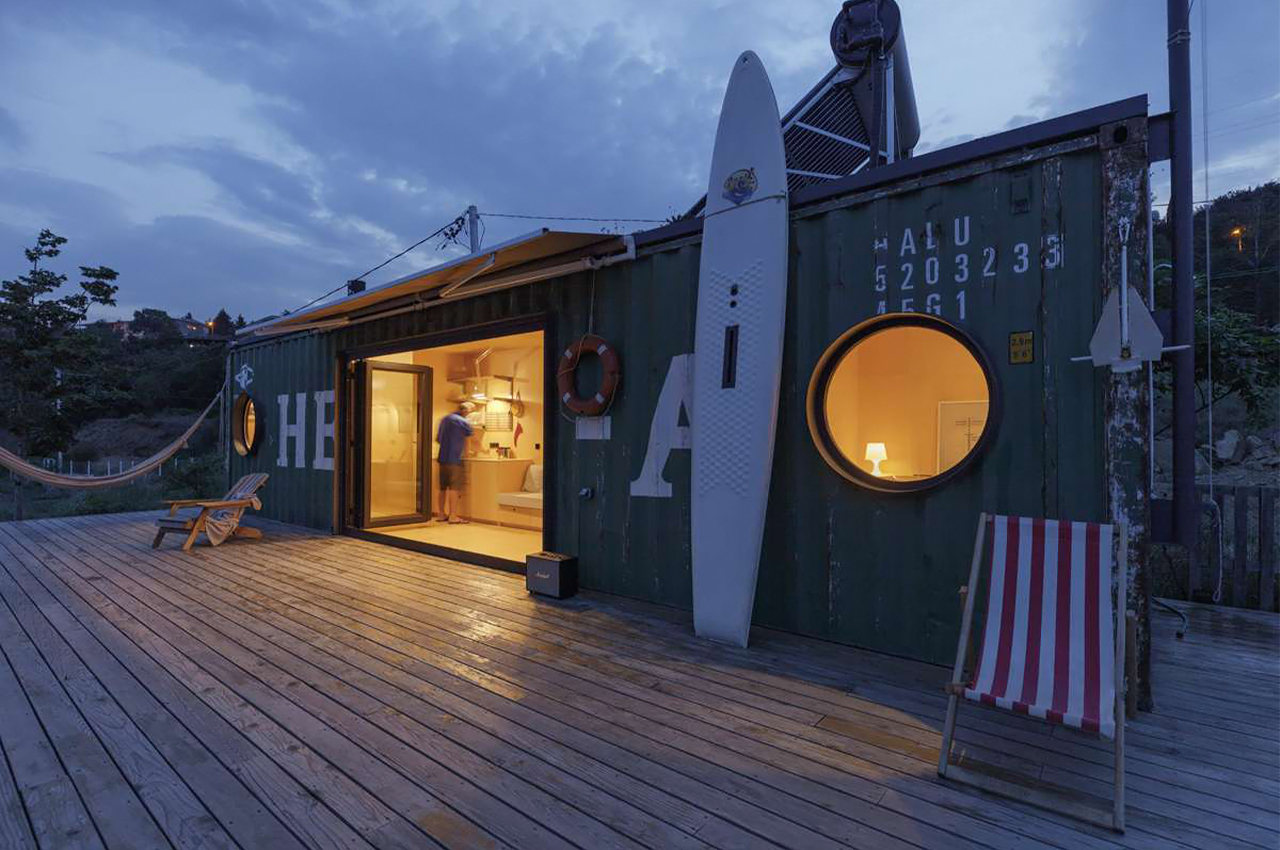
This type of architecture and design is heavily based on material observation, investigation of potential reuse, and experimentation.”These practices yield truly interesting results. This form of architecture has many positive aspects – it is ecologically sustainable, suitable for reuse, cost-effective and since it is ‘pre-fabricated,’ requires minimal construction time,” adds the team.
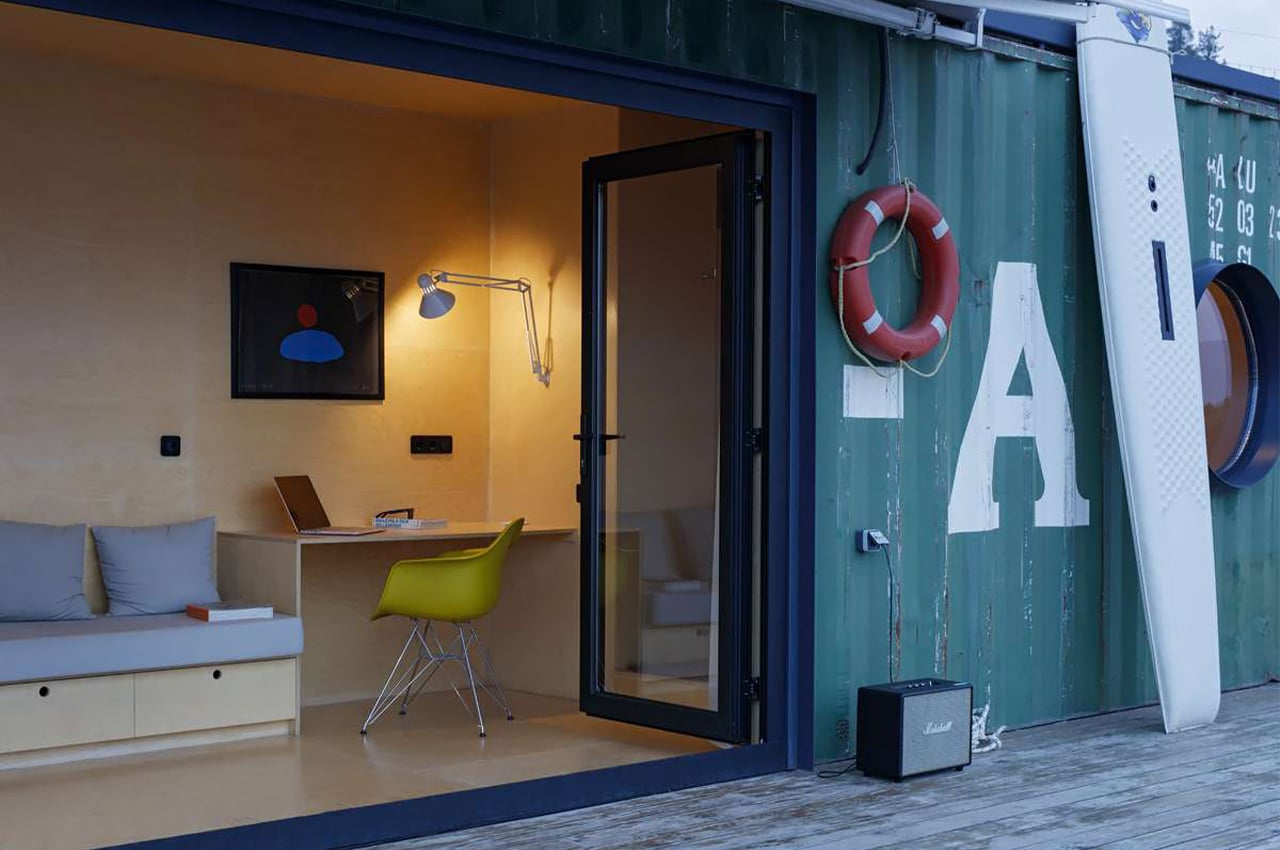
The office container is 12 meters (40 feet) in length, with the cabin adopting a linear layout throughout the interior. Far edges of the container are transformed into rest areas as well as bathroom and storage spaces. The middle part of the container, the shared space, comprises a small kitchen, a working desk, and a living room. Large sliding doors allow the indoors and the outdoors to blend with each other, creating an open, accessible platform with a sea view.
Designer: MUA Architecture & Placemaking
